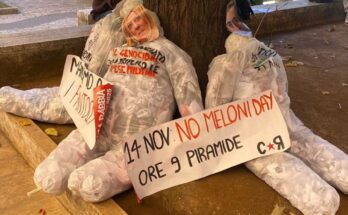“Archives often have a dusty and elitist image… There, for once, the general public can discover them and participate in their actions in a different way! », says Véronique Bourbigot, vice president of the board of the Finistère department in charge of culture and heritage.
As the elected representative recalled, the department participated, as part of the 80th anniversary of the Liberation, in “a national and inter-ministerial mission that proposed that the archives could recover, at least for digitization, individual documents relating to the Second World War”.
Wall of memories…
“We think this idea is amazing,” he continued. We are working on networking with patriotic associations and memorials to get out of the archives and meet with media libraries and social centers.”
This gave rise to a collection of documents, both donations and loans, totaling more than 1,000 items. More than for the 14-18 collection. “Most of it is now continuing to be digitized but much of it is in the form of the Wall of Memory, a temporary exhibition that can be seen until November 27,” said Bruno Corre, director of the Quimper archives.
Among these documents, there are some that are “extraordinary”, even “very rare”. In addition to numerous writings, correspondence from members of the Resistance, photographs taken in prison camps, posters that were banned at the time.
“When individual history aligns with national memory”
“We accept CVR cards (Volunteer Resistance Fighter Cards) but also cards for refractory prisoners or even pictorial documents for the organization of sports competitions in stalags, by non-officers in captivity,” explains the manager. Or even a very rare small fund in the FFI archives: mysterious, coded notes circulated among local resistance fighters to arrange secret meetings”
Another outstanding collection: a photographic document illustrating the Liberation of the village of Plouvorn, near Morlaix, by the Americans where we see a priest applauding the latter’s march!
“These stories are invaluable, especially because they go beyond family secrets,” concludes Bruno Corre. When individual history aligns with national memory, there is an almost palpable echo of the past…”



